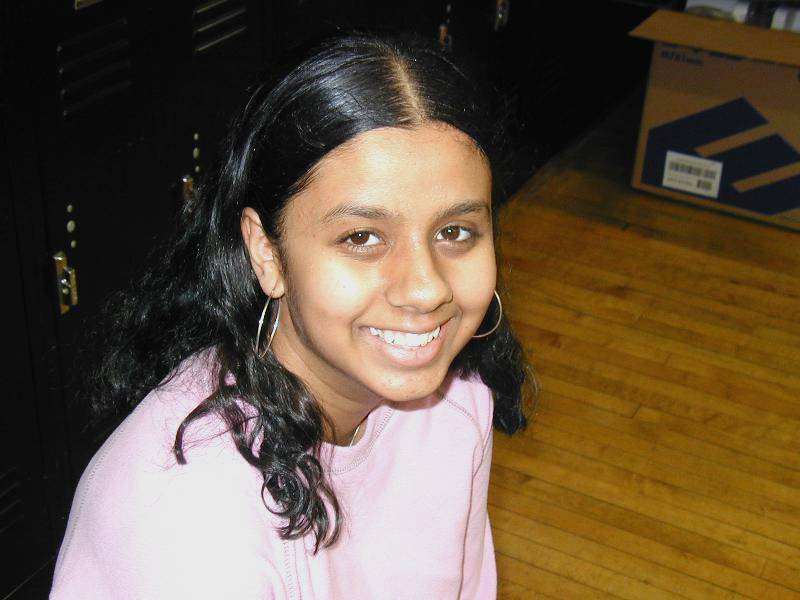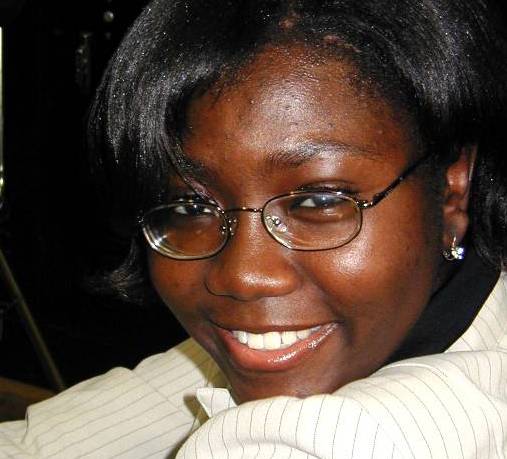|
SEASON's GREETINGS
by
PAUL MUNSINGER
 To begin this December issue, the College Now News staff and I would like to take this opportunity to wish all CN students, parents, teachers, other team members and our general readers a wonderful holiday. To begin this December issue, the College Now News staff and I would like to take this opportunity to wish all CN students, parents, teachers, other team members and our general readers a wonderful holiday.
College Now represents a cross-section of some of the most interesting and colorful diversities around; and although there may be differences in our food, traditions and calendars, we are one family and share collectively in the joys and festivities of the season.
May the sure message of "peace on earth" sound and re-sound from sea to shining sea!! And here's wishing you a wonderful, happy 2002. We sincerely hope it will prove to be the best year ever!
The following articles were written by College Now students and the CNN staff. Some are of a "research" nature, and others are by those who just wanted to share how they celebrate the holiday season in their homes and describe their customs and traditions. We hope you will enjoy these vignettes.
Sincerely,
Mr. Munsinger and the CNN Staff
RETURN TO INDEX
WHAT THE HOLIDAYS MEAN TO ME
by MARIAM KHAN
 Many people may think that Christmas is a holiday that only Christians celebrate, but really it's not. I am not a Christian, I am a Hindu, and I celebrate Christmas. Many people may think that Christmas is a holiday that only Christians celebrate, but really it's not. I am not a Christian, I am a Hindu, and I celebrate Christmas.
On Christmas Eve, my brother and I put up the Christmas tree with the decorations on it. My mom prepares the food to cook, and the next day my father decorates the lights on outside.
Before we go to bed, we put the gifts that are already wrapped under the tree. On Christmas Day, we get up early in the morning, eat breakfast and open our gifts. After we are done doing that, my brother and I have to clean up the mess while my mom cooks and my dad sits back and watches television.
At night, we all sit at the table and eat dinner together. Then before Christmas is over, we all sit and watch a movie that my father rents at Blockbuster.
That�s the usual routine every year for my family. There are many other Hindu families that celebrate Christmas. Some may celebrate it the same way I do, and some may celebrate it differently.
RETURN TO INDEX
CHANUKAH
CNN Staff
Hanukah, or another spelling is Chanuka, occurs near Christmas time. It is a Jewish celebration and is sometimes called the "Feast of Lights".
It is celebrated for eight days and it started during a struggle for religious freedom. The war was led by Judah Maccabee and he and his army reclaimed the Jewish Temple. It was in very bad shape and could hardly be called a place of "worship". In those days they didn't have electricity and used oil in lamps. The Talmud (the Jewish Bible) says that when the Jewish army wanted to rededicate the Temple, they were unable to find enough of this special oil to light the Menorah, or candelabra, used in the Temple service.
Finally, in one of the back rooms in the temple, they found one little bottle of this special oil, but it usually would only last one night. But because of a miracle that happened, that one little bottle lasted eight nights. Then later they got some other oil so the miracle ended.
And that is why in some Jewish homes they have a Menorah with eight candles, and this is because of that miracle, that this one-day supply of oil lasted eight days. And in some Jewish homes gifts are exchanged every night for eight days!
RETURN TO INDEX
RAMADAN
CNN Staff
Ramadan is a time in the Muslim reglion when the Muslims take time to worship God and remember all the things that their religion teaches. It is also a time when they want to strengthen family and community ties. The Muslim people show their devotion to God by fasting during the day every day in this month of Ramadan. They believe that this way food does not get in the way of their thinking about God.
During the month, Muslims try to read as much of the Qur'an (the Muslim Holy Scriptures) as they can. Many Muslims spend part of each day during Ramadan going to a mosque (church) and listen to someone read or recite the Qur'an. some spend the last ten days of Ramadan in the mosque devoting the whole time during the day for worshipping God.
Since Ramadan is a special time, Muslims in many parts of the world prepare favorite foods during the month. Ramadan emphasizes the community of friends and family, and since everyone eats at the same time during this month, Muslims often invite one another to share in the Ramadan evening meal.
Another reason why they fast is that when they fast and get hungry, this is a way of experiencing hunger and knowing how others feel around the world who are really hungry and less fortunate. And so they learn to be thankful and appreciate all of God's blessings.
Children do not fast during Ramadan until they become a certain age. They give the little kids presents on the last night of Ramadan, but they don't tell them they're from Santa Claus. They just give them.
RETURN TO INDEX
KWANZAA
CNN Staff
(Justice Sky Opare, Consultant)
Kwanzaa (Quansa) is a holiday celebrated by many African-Americans from December 26th through January 1st. It was started in 1966 by Doctor Maulana Karenga, Professor at the California State University, Long Beach, California.
There are seven principles of Kwanzaa, one for each of the seven days of Kwanzaa. They are UMOJA (unity); KUJICHAGULIA (self-determination); UJIMA (responsibility); UJAMAA (cooperative economics); NIA (purpose); KUUMBA (creativity) and IMANI (faith).
The actual ritual involves candles which represent those seven principles beginning with Umoja. Candles are then lit each day from left to right. Three red candles are placed on the left and three green candles are placed on the right. They also give out presents.
RETURN TO INDEX
IS CHRISTMAS STILL CHRISTIAN?
by Lillian Agyei
 It�s another December. Time for cheer and time for happiness. But is the real true meaning of Christmas being forgotten or being put last because of all the false information told about Christmas?
It�s another December. Time for cheer and time for happiness. But is the real true meaning of Christmas being forgotten or being put last because of all the false information told about Christmas?
Well, in a Christian home, Christmas is celebrated by acknowledging the birth of Jesus Christ as the Savior of the world. In my home we recognize this and keep the tradition of a real Christmas alive but still have fun. I mean we still put up a Christmas tree and the decorations and all, but we also thank God for taking us throughout the year and we go to church. On the night of Christmas, we have a dinner at home with my family and on Christmas morning, like any other family, we open our presents.
Christmas is originally known for Jesus� Birthday, but as the years have gone on, the real meaning has just dissolved into thin air and has been replaced by a myth by the named Santa Claus. I don�t have anything against him. I used to believe in him (believe me I used to!)--but young children should realize the true meaning of Christmas and the serious side of it is more than it all being presents, Christmas carols and Santa Claus.
"Is Christmas still Christian" is a question that people will have all kinds of opinions to. I think it still is, but not as much as it should be. Christmas is one of the BEST holiday�s of the year, and I think it should be celebrated the right way.
My best wishes to all human kind this holiday season, and though it may seem different due to the events of September 11th, our hearts shall still be merry and we shall celebrate this holiday the best way we can.
RETURN TO INDEX
RAMADAN IN MY HOUSE
by Faton Nezaj
Muslims have a fasting called Ramadan. It is for 30 days. You pray five times a day and you give to the poor. During the fasting you can't eat or drink between sunrise and sunset. Children are not expected to fast. Women who are nursing and experience menstruation are exempt from fasting. There are penalties for those who intentionally break the fast. You read the Koran through the night on the Holy Night (the first night) during the month of Ramadan. That was considered the night that Allah (God) delivered the Koran (Quran). Those that break the fast unintentionally are allowed to resume the fast because it is usually said that it is Allah (God) who feeds that person. Then after the last day of Ramadan, the next day there's a holiday for three days. This is a big family feast with food and giving thanks to Allah, and the kids get gifts too.
RETURN TO INDEX
Previous Issue
|
|
 ...the e-Magazine of Choice!!
...the e-Magazine of Choice!!
 To begin this December issue, the College Now News staff and I would like to take this opportunity to wish all CN students, parents, teachers, other team members and our general readers a wonderful holiday.
To begin this December issue, the College Now News staff and I would like to take this opportunity to wish all CN students, parents, teachers, other team members and our general readers a wonderful holiday.  It�s another December. Time for cheer and time for happiness. But is the real true meaning of Christmas being forgotten or being put last because of all the false information told about Christmas?
It�s another December. Time for cheer and time for happiness. But is the real true meaning of Christmas being forgotten or being put last because of all the false information told about Christmas?